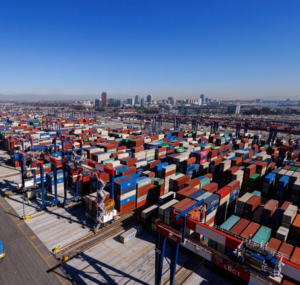
Trump Administration Increases Pressure Ahead of Tariff Deadline
As the deadline for potential import tariffs looms, President Donald Trump and his top trade advisors are intensifying pressure on global trade partners to negotiate more favorable terms with the U.S.
In an interview with CBS’s Face the Nation on Sunday night, White House Council of Economic Advisers Director Kevin Hassett stated that President Trump will personally decide when the negotiation grace period will end, indicating that extensions are possible — but not guaranteed.
“The U.S. always wants to talk with everyone about everything. There are deadlines that are approaching, and they may either be extended or may simply expire — that decision will ultimately be made by President Trump,” said Hassett.
Grace Period Could Be Extended—But Not for All
Echoing similar sentiments, White House economic policy advisor Stephen Mirren emphasized that countries that negotiate in good faith and offer trade concessions could earn a deadline extension.
“Nations that show a willingness to compromise and engage in genuine talks may see the timeline extended,” said Mirren.
This comes after President Trump announced new global tariffs on April 2, sparking volatility in international markets and raising concerns about a full-blown trade war.
Markets Reacted Sharply After Tariff Announcement
Immediately following the announcement, economic markets saw significant turbulence. In response, the administration temporarily suspended most of the import duties for 90 days, allowing trade talks to continue without immediate economic consequences.
However, that grace period is now approaching its July 9 expiration, and only the UK and Vietnam have managed to finalize limited trade agreements with the U.S. within this window.
Experts argue that without further compromises from other nations, a wave of tariffs could be reimposed, triggering retaliatory measures and further disrupting global supply chains.
Trump’s Tough Trade Tactics Stir Global Concerns
Trump’s strategy of using tariff threats to extract better trade terms has drawn criticism both domestically and internationally. While some see it as a necessary push for fairer trade, others view it as escalating protectionism.
International economists warn that if the tariffs are reinstated after the grace period, it may ignite broader trade wars, impacting everything from steel and aluminum to agriculture and consumer goods.
Despite the uncertainty, the Trump administration maintains that its primary goal is to protect American industry and workers, ensuring that the U.S. does not continue to suffer from what it considers “unfair trade practices.”